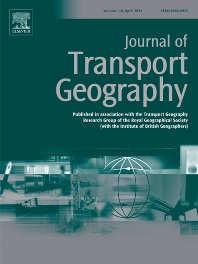Journals in Environmental studies
Journals in Environmental studies
Land Use Policy
The International Journal Covering All Aspects of Land UseLand Use Policy is an international and interdisciplinary journal concerned with the social, economic, political, legal, physical and planning aspects of urban and rural land use. It provides a forum for the exchange of ideas and information from the diverse range of disciplines and interest groups which must be combined to formulate effective land use policies. The journal examines issues in geography, agriculture, forestry, irrigation, environmental conservation, housing, urban development and transport in both developed and developing countries through major refereed articles and shorter viewpoint pieces.Land Use Policy aims to provide policy guidance to governments and planners and it is also a valuable teaching resource.- ISSN: 0264-8377

Marine Policy
Marine Policy is the leading journal of ocean policy studies. Submissions to Marine Policy must contribute to the formulation and understanding of marine policy, and must be of interest to a broad audience of academics, stakeholders and officials. Marine Policy offers researchers, analysts, stakeholders and policy-makers a unique combination of analyses in the principal social science disciplines relevant to the formulation of marine policy. Articles represent perspectives from fields such as marine affairs, marine economics and resource management, political science, marine science, human ecology, international law, geography, normative theory, anthropology and similar disciplines. Focal areas include, but are not limited to: international, regional and national marine policies; institutional arrangements for the management and regulation of marine activities; conflict resolution; marine pollution and environment; conservation and use of marine resources.We are not a technical journal and will recommend that overly-technical papers are transferred to other more relevant journals. We will consider policy papers that do include a technical analysis, but only if this directly informs a policy analysis or discussion. We request that authors minimise the inclusion of formulas and model details needed to explain the methods and analysis in the main text. Detailed formulae and calculations should be included in an appendix or supplementary materials, and summarised in the main text.Submissions to Marine Policy must include a cover letter that briefly describes the background for the paper and its significance for marine policy formulation and understanding. The cover letter should also note any related work that may be publicly available, such as a Doctoral or Masters thesis, institutional report, etc, so as to avoid any misunderstandings regarding plagiarism. The cover letter should also note any ethics processes and considerations if your study included field research, human research (i.e interviews, quantitative or qualitative surveys, ethnographic observations etc) or animal research.The submission must include an abstract of approximately 250 words that is self-contained and readable on its own. The abstract should describe the key content areas, the purpose of the research, its relevance or importance for policy formulation and understanding, the methodology, and the main outcomes. Abstracts should also include the key terms that a potential researcher may use to search. Abstracts allow editors, reviewers and readers to assess whether the paper is relevant to their purpose, and are important to search engines.Regular features of Marine Policy include research reports, conference reports and reports on current developments to keep readers up-to-date with the latest developments and research in ocean affairs.- ISSN: 0308-597X

Journal of Transport Geography
The International Journal Focusing on Transport and Spatial ChangeThe Journal of Transport Geography is a leading interdisciplinary journal focusing on the geographical dimensions of transport, travel and mobility. It is international in its outlook, and welcomes both conceptual papers and theoretically-inform... empirically-oriented contributions on the movement of people, goods and/or information by any mode and at every geographical scale.An indicative list of topics that are of interest to the journal includes:•The spatial dimensions of sustainable and safe mobility and the interrelations of transport with energy, the environment and climate change•The role of transport and mobility in the globalisation of economies and trade, and in political, cultural and other forms of spatial integration and change• The spatial dynamics of aviation, high-speed and urban rail, maritime and intermodal transport, and logistics networks•The linkages between transport infrastructure nodes, such as ports, airports, train stations, distribution centres and other terminals, and their local regional and national environments•The effects of transport policy and governance on regions and places, both urban and rural•The geographical dimensions of the organisation, structure and operation of public, private and other forms of transport provision•The impacts of transport infrastructure investment on mobility, livelihoods, social networks, the spatial economy, and patterns of development•The relationships of transport, travel behaviour and accessibility with the built environment in cities, urban systems, and in rural settings•The relationships of age, gender, race/ethnicity and social class with travel, mobility and accessibility•The geographical aspects of travel undertaken in the context of recreation and tourism•The spatial implications of technological advances for mobility and transport systems•Methodologic... developments highlighting the geographical dimensions of transport and mobility•Geo-spatial methods (including GIS), digital data and qualitative methodologies for analysing issues in transport geography- ISSN: 0966-6923

The Extractive Industries and Society
The Extractive Industries and Society is the one journal devoted to disseminating in-depth analysis of the socio-economic and environmental impacts of mining and oil and gas production on societies, both past and present. It provides a platform for the exchange of ideas on a wide range of issues and debates on the extractive industries and development, bringing together research undertaken by an interdisciplinary group of social scientists in academia, government, the NGO community and industry. Topics covered by the journal include environmental management at mines and rigs; Corporate Social Responsibility and community development; the environmental and social impacts of artisanal and small-scale mining in developing countries; corruption and the extractive industries; industry reform; the donor community and the extractive industries; climate change and fossil fuel extraction; and taxation and foreign direct investment in the sector. Submissions which draw upon experiences from both developed and developing countries are invited from across the social sciences. The journal publishes original research articles, field reports, critical reviews, conference reports, book reviews and short correspondences.- ISSN: 2214-790X
